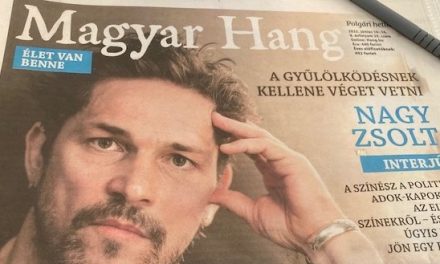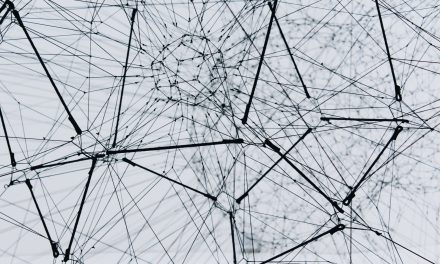Reply from the European External Action Service (EEAS) to questions from William Horsley for the working conference on “Safety and Protection of Journalists: A Responsibility for the World.”
— Political Aspects Study of the Initiative on Impunity and the Rule of Law —
The European Union (EU) seeks to promote freedom of expression throughout the world. Freedom of opinion and expression is not only a fundamental right of every human being but also a cornerstone of democracy. The EU equally condemns harassment, intimidation and attacks against journalists wherever they occur. The EU has most recently reiterated its position in its declaration on World Press Freedom Day (annexed).
The EU raises the issue of freedom of expression and protests at violations which target journalists in a variety of ways. In some cases, the EU raises its concerns in public statements. To take some recent examples: on 10 April 2011, the EU High Representative expressed her concern at the crackdown on independent media in Belarus and at the detention of Mr. Andrzej Poczobut, a correspondent for the Polish newspaper Gazeta Wyborcza; on 7 April 2011, the EU expressed concern at the dispersal of a peaceful demonstration in Azerbaijan and at the prevention of some journalists from reporting and the arrest of four journalists; on 4 February 2011, the High Representative expressed her deep concern about reports on the increasing number of attacks and arrests of journalists and human rights defenders in Egypt, and called for their immediate and unconditional release by the authorities; and following a number of attacks on journalists in China, on 28 February 2011, the EU Head of Delegation in Beijing urged the Chinese authorities to respect the rights of foreign journalists to report freely in China according to the relevant laws and regulations and to ensure their physical safety while carrying out their work.
The EU also uses public statements to make clear its firm opposition to any unjustified restrictions of access to the internet and other new media. For example, on 20 February 2011 the EU called on the Libyan authorities immediately to cease the blocking of public access to the internet and mobile phone networks and urged the authorities to allow media to work freely throughout the country, while on 31 January 2011 the Foreign Affairs Council called upon the Egyptian authorities to restore all communication networks without delay and to guarantee unhindered access to all media, including the Internet.
[Passage cited] The EU conducts regular political dialogue meetings, including human rights dialogues, with almost all third countries. The EU regularly raises the issue of freedom of expression and media, and individual cases of journalists suffering intimidation or persecution, in these dialogues. In urgent cases, the EU undertakes confidential demarches to third countries protesting either at negative developments (such as the introduction of new legal restrictions on the media) or at particular cases of harassment of journalists.
In its recent GSP+ investigation into Sri Lanka, one of the main violations of human rights investigated by the Commission was widespread intimidation of journalists. Among the grounds which led the Commission to propose that the GSP+ should be withdrawn from Sri Lanka was that strong verbal attacks by the government on journalists combined with a failure to take effective action to protect journalists against physical violence had undermined the right to freedom of expression. In its subsequent negotiations with the Government of Sri Lanka concerning the GSP+, the Commission called on the Government to release the imprisoned journalist, Mr J.S. Tissainayagam, as well as to take steps to ensure journalists could exercise their professional duties without harassment.
The EU also makes clear its support for freedom of expression and for journalists in danger in statements in various international fora. On 17 March 2011, the EU, in its response to the report by the OSCE Representative on Freedom of the Media, expressed its concern at further acts of violence against journalists, including the post-election violence against journalists in Belarus, the brutal attack on Hikmatullo Saifullozoda in Tajikistan, and at the dangers facing journalists in the Russian Federation and Ukraine.
The EU provides financial support under the European Instrument for Democracy and Human Rights for a large number of projects with civil society organizations aimed at increasing the professional capacities of journalists, providing urgent protection needs and promoting freedom of expression in law and in practice. For example, the EU Delegation in Russia organised in early April an EIDHR seminar on mass media and freedom of expression with Russian civil society organizations and journalists.
ANNEX
Declaration by the High Representative, Catherine Ashton, on behalf of the EU on the occasion of World Press Freedom Day, 3 May 2011
“Freedom of opinion and expression is a fundamental right of every human being and an inherent part of human dignity. It is also a cornerstone of democracy and crucial for the free flow of information to which everyone is entitled. On the occasion of World Press Freedom day, the European Union recalls these basic principles, enshrined in international law, and the vital role played by independent and free press and media. The EU pays particular tribute to the invaluable work of the many journalists and media professionals around the world who with dedication and courage contribute to revealing the truth about unfolding events.
As the recent events in countries neighbouring the EU illustrate, it is thanks not only to the professional commitment of journalists and other media professionals, but also to the many private bloggers, that the world learns about the situation on the ground and people’s aspirations for freedom and social justice. However, many journalists, particularly in conflict zones, face constant danger in communicating first hand information, sometimes at risk to their own lives. In many cases, they are targeted by those who dislike the nature of the information they reveal, suffering arrest or kidnapping, torture or killing. The EU calls upon all governments to abide by international norms for the protection of freedom of the press and media and to release without delay all journalists or bloggers unlawfully detained.
Censorship and harassment of journalists are unacceptable. Regrettably, there are still too many countries where access to information and journalistic freedom are restricted. The internet and social media have become an important way of promoting freedom of expression; they provide unprecedented access to information and a way of communicating with the largest possible audience. That is why the EU is firmly opposed to any unjustified restrictions on the internet and other new media.
The EU calls on all States to proactively promote freedom of opinion and expression as well as media pluralism and independence.”




